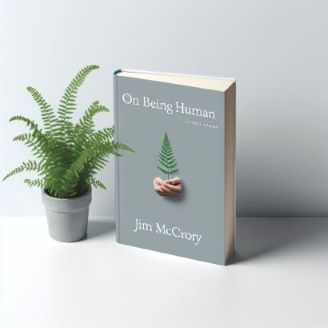The mosque is too far from home,
So, let’s do this,
Let’s make a weeping child laugh
Nidi Fazli
 https://unsplash.com/@aaronburden
https://unsplash.com/@aaronburden
Religion
should be a force for good
The poet Nidi Fazli once
wrote, "The mosque is too far from home, so, let's do this—let's make a
weeping child laugh." In this simple yet profound reflection, Fazli
invites us to shift our focus from the grandiosity of religious structures to the
heart of religious practice itself. If we cannot reach the sacred spaces that
tradition has marked for us, what then? Fazli suggests that perhaps the most
sacred act is to comfort a child, to be a source of joy and compassion in the
world.
This notion can be
applied across religions. Christianity, too, emphasizes that faith must
manifest in tangible acts of love and kindness. The early Christians, as
described in the Book of Acts, sold their possessions and laid the proceeds at
the feet of the apostles to be distributed to those in need (Acts 4:35). Here,
religion isn't merely a matter of doctrine or ritual but of community,
self-sacrifice, and compassion. It is a recognition that true faith calls us to
serve others, to love our neighbours as ourselves.
The early Christian
community understood that their faith was to be expressed not just in words,
but in action. The radical decision to give away one's possessions speaks to a
worldview that sees material wealth as secondary to the well-being of others. Such
acts reflect a deep understanding of the biblical command to care for the most
vulnerable members of society. In Exodus 22:22, 23, God gives a stark warning to
those who would oppress widows and orphans:
“You shall not take advantage of any widow or fatherless child. If you take advantage of them at all, and they cry at all to me.” (BSB)
This is not a passive
God, indifferent to suffering. This is a God whose heart is aligned with the
marginalized, the oppressed, and the vulnerable.
The principle in this
passage reflects the core ethic of many religious teachings: to look out for
those who cannot fend for themselves. It reminds us that faith is not only
about our relationship with God, but also about our relationship with one
another. God’s fury in the face of injustice towards the powerless underscores
how central these issues are to the divine nature. The divine commands justice,
mercy, and care for the “least of these” (Matthew 25:40). In fact, failure to
heed this call is not just a personal moral failing, but a direct affront to
God.
In the modern world,
religious organizations continue to embody this ethic in various ways.
Christian medical missions reach underserved communities, providing healthcare
to those who would otherwise be neglected. Orphanages and charitable
institutions offer homes and care for children who have been abandoned or
orphaned, continuing a tradition of service that dates back to the earliest
Christian communities. Churches, mosques, temples, and other places of worship
provide not only spiritual nourishment but also tangible resources—food,
clothing, and even shelter to those in need. Many Christians, inspired by
Jesus' teachings, visit the homeless with food and toiletries, working to
restore a sense of dignity to those who have lost so much.
Yet, Nidi Fazli’s lines
also remind us that sometimes religion can be inaccessible or distant from
everyday life. Whether through institutional failures, geographic distance, or
rigid dogma, religious practice can sometimes feel disconnected from the immediate
needs of our world. The mosque may indeed be too far from home. The church may
seem irrelevant or aloof. But Fazli’s words urge us to see that the essence of
faith transcends buildings or ceremonies—it is found in the simple, human acts
of love, kindness, and empathy.
This idea resonates
deeply with the teachings of Jesus, who spent much of his ministry among the
outcast and downtrodden. His healing touch, his words of comfort, and his acts
of service were done outside the walls of the temple. He showed that true faith
is not confined to sacred spaces or religious professionals. Instead, it is
lived out in the streets, in homes, and in the everyday interactions between
people.
Faith, when genuine,
leads us to actions that reflect God’s love and justice. Whether we are
providing medical care to the sick, shelter to the homeless, or simply making a
weeping child laugh, we are doing God’s work. Religion should be a force for
good, a force that heals and brings joy, a force that defends the defenceless
and uplifts the downtrodden.
Perhaps, then, the most
important religious act we can perform today is not to walk into a mosque or a
church but to walk into someone’s life with compassion. To see the crying child
and, as Fazli suggests, make them laugh. It is in these moments that we live
out the true essence of faith, embodying the divine command to love one another
as God loves us.
So, be careful when someone claimed to be a Christian James 2, 15,17,
What good is it, my brothers, if a man says he has faith, but has no works? Can faith save him? And if a brother or sister is naked and in lack of daily food, and one of you tells them, “Go in peace. Be warmed and filled;” yet you didn’t give them the things the body needs, what good is it? 17 Even so faith, if it has no works, is dead in itself. 18 Yes, a man will say, “You have faith, and I have works.” Show me your faith without works, and I will show you my faith by my works. (WEB).

